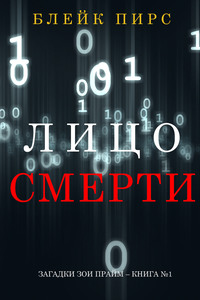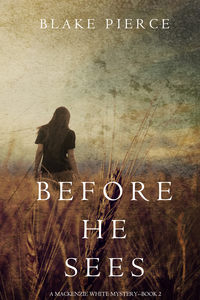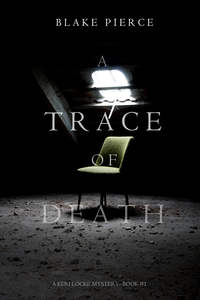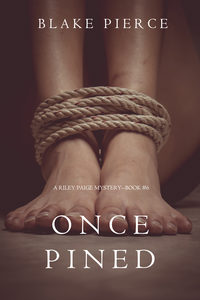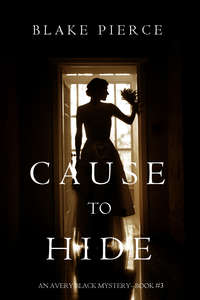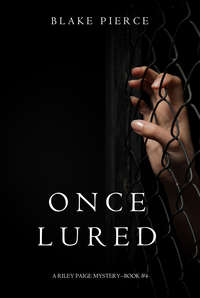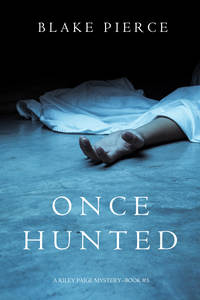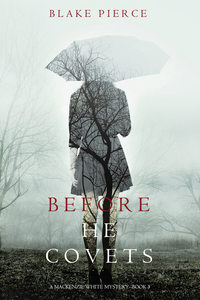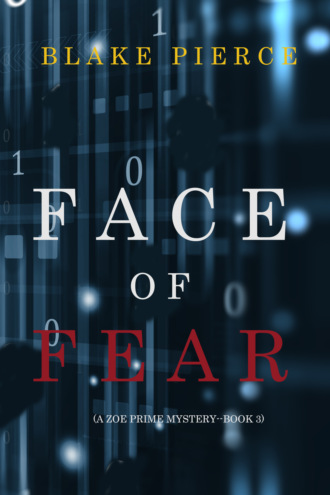
Полная версия
Face of Fear
Was she breathing at the right pace, anyway? How quickly was one supposed to breathe? Was she doing it right? What if she had been breathing wrong for this whole time? For her whole life? How would she know?
Despite her doubts, she kept at it in the silence, and eventually started to feel herself relaxing.
“You’re doing great,” Dr. Monk said, her voice quieter and lower now. “Now I want you to picture a sky. You’re sitting, looking up at that sky. Beautiful blue, just one little cloud floating by above, nothing else on the horizon. It stretches out over a calm blue sea. Can you see it?”
Zoe wasn’t the best at imagining things, but she remembered an image she had recently seen, an advertisement for a travel company. A family happily playing in the sand, an impossibly blue paradise behind them. She put herself there, focusing on that. She gave a small nod to let Dr. Monk know she was ready to continue.
“Good. Feel the warmth of the sun on your face and your shoulders. It’s a beautiful day. Just a light breeze, exactly the kind of weather you would ask for. You’re sitting in a small inflatable boat, just off the shore. Feel it rocking gently in the motion of the sea. It’s so peaceful and calm. Isn’t the sun wonderful?”
Zoe would normally have laughed at something like this, but she did as she was told, and she could almost swear that she could feel it. Real sun, beating down on her brow. Not too oppressive: the kind of sun that made you think you were getting a tan, not skin cancer.
Skin cancer. Shouldn’t have thought about skin cancer. Focus, Zoe. Rocking in the current.
“Look over to the side. You’ll see the island behind you. The beach where you just came from, and behind it the rest of this paradise. What do you see?”
Zoe knew exactly what she saw when she looked over there: another image from a travel advertisement. A place she had wanted to go. Except it had been advertised as a honeymoon destination, and she had been single at the time, and it had only made her feel more alone.
“Golden sand,” she said, the sound of her own voice strangely distant and unfamiliar. “Then lush undergrowth. Behind it, tropical trees reach up to the sky, ten feet and more. The sun is coming down at a harsh angle, shadows only half a foot long. I can’t see beyond them. There’s a tree leaning right out at a forty-five-degree angle over the water, with a seven-foot hammock tied beneath it. It’s empty.”
“Try to focus more on the scene than the numbers. Now, listen. Can you hear the waves gently washing onto the sand? Can you hear bird calls?”
Zoe breathed deeply, letting this new layer of sensation wash over her. “Yes,” she said. “Parrots. I think. The waves come at intervals of three seconds. Bird calls every five.”
“Feel the warm sun on your face. You can close your eyes, stop counting. You’re safe there.”
Zoe breathed, still watching the island in her mind. Her eyes kept straying to the hammock. Who was it for? For herself, or would someone join her one day? John? Did she want him there, on this personal island of hers? It was sized for a man. She was only five foot six herself. The hammock hung two feet above the water.
“That’s great, Zoe. Now, I want you to focus on your breathing again. Count down from ten, just like we did before but in reverse. As you do, I want you to slowly come back from your island. Let it fade out, and let yourself wake up, a little at a time. Gently, now. That’s it.”
Zoe opened her eyes, a little embarrassed to find how much mellower she felt—and now aware of how strange it seemed, to have been away on a little island in her head while her therapist watched her sit straight-backed in an armchair.
“You did really well.” Dr. Monk smiled. “How do you feel now?”
Zoe nodded. “Calmer.” Still, she felt doubt. The numbers had been there. They had followed her, even into that space. What if she could never get rid of them?
“That’s a great start. You’ll find it more peaceful the more you do the exercise. And that’s a great thing, because it can be a calm place that you return to whenever you feel stressed out or overwhelmed.” Dr. Monk dashed out a few notes in her book, her pen making quick and spidery lines that Zoe could not guess at.
“What if I need to shut the numbers out fast? Like, in an emergency situation?” Zoe asked. “Or if I can’t tell the other person why I need to calm down?”
Dr. Monk nodded. “Try just counting your breaths as you did to enter the meditation. We’ll need to test this out in a real scenario, but it’s my belief that counting one thing—your breath—may allow you to stop seeing the numbers elsewhere. It’s a distraction tactic—keeping the numbers side of your brain occupied while you focus on something else.”
Zoe nodded, trying to cement that into her head. “Okay.”
“Now, Zoe, about not wanting to explain to people why you need to shut out the numbers—or the fact that you can see them. Why is it that you’re still determined to hide this gift?” Dr. Monk asked, tilting her head in a way that Zoe had come to recognize as meaning a change of tack.
She struggled to answer that one. Well, no, she didn’t: she knew the reason. There was a fear that had gripped her since she was a young girl, reinforced by screams of devil child and enforced praying sessions that kept her on her knees all night, wishing for the numbers to go away. It was just hard to say that out loud.
“I do not want people to know,” she said, picking a piece of imaginary lint from the knee of her trousers.
“But why is that, Zoe?” Dr. Monk pressed. “You have a wonderful ability. Why don’t you want to share it with others?”
Zoe struggled. “I… do not wish them to think of me differently.”
“You’re afraid that your peers will perceive you differently from how they do now?”
“Yes. Maybe…” Zoe hesitated, shrugging her shoulders. “Maybe they might try to—to do something with it. To exploit it in some way. I do not wish to be a puppet for someone else to use. Or the victim of tricks and pranks. Or a performance piece for people to test.”
Dr. Monk nodded. “That’s understandable. Are you certain that’s all you are afraid of?”
Zoe knew the answer. She even whispered it in her head. I am afraid that they will all know—that they will see I am not normal. I am not one of them. I am a freak of nature. I am afraid they will hate me for it. But, “Yes, I am sure,” she said, out loud.
Dr. Monk studied her for a moment, and Zoe was sure that the game was up. Dr. Monk was a therapist—of course, she could tell when someone was lying to her. She would press the point, get Zoe to admit the secret fear she had buried deep inside of herself for so very long.
But all she did was close her notebook and place it carefully on her desk, turning on a brilliant smile. “We made some fantastic progress today, Zoe. We’re at the end of our session, so please put that meditation into your nightly habits and try to stick with it. I’d like to hear if you’ve made any progress when we next meet.”
Zoe stood and thanked her and left, feeling like she was saved by the bell.
And then there was a more literal bell, a ringing coming from her pocket. She dug her cell out as she walked through the waiting room, seeing Shelley’s name on the caller ID.
“Special Agent Zoe Prime,” she said. It felt good to use the proper, official address, even when she knew who was calling.
“Z, it’s me. Chief needs you to come to the airport right away. We’ve got a case in LA. Grab an overnight bag, and I’ll meet you there.”
“How long do I have?” Zoe asked.
“Forty-five minutes, then we fly.”
“See you there,” Zoe said. She hung up the phone and strode more purposefully through the hall, calculating how much time she would have for packing after allowing for travel time to the airport.
Inside, she thrilled, just a little. It had been a while since their last case, all paperwork and court dates and bureaucracy. Even if she wasn’t exactly happy that someone had died, it would be good to get stuck into a nice, easy murder case—and she mentally crossed her fingers that that was what they were going to get.
CHAPTER FOUR
Zoe looked out the window at the clouds, passing by under the plane’s wing. Perhaps there should have been a kind of peace in that for her. There was nothing to count, after all. But she didn’t enjoy the sensation of being so far above the ground, and she never would. She hated the thought that someone else was fully in control of and responsible for her life.
“SAIC Maitland left us these files,” Shelley said, proffering a couple of manila folders to get Zoe’s attention.
Zoe turned back from the window, blinking her eyes to get herself to focus. “All right. What are we looking at that is so urgent we could not wait for a briefing in person?” Shelley’s blonde hair was neatly tucked into a bun behind her head, her makeup as neat and precise as ever. Zoe wondered briefly how she always managed to look so put-together, even with a young child at home—and even when getting on a plane at short notice.
“Two victims,” Shelley said. She spread the files apart. “Evidently the team on the ground felt that they were never going to get anywhere without Bureau help. They turned it over voluntarily.”
“Voluntarily?” Zoe’s eyebrows shot up. “No wonder Maitland wanted us over there as quickly as possible. He probably thought they might change their minds.”
It wasn’t often they got a case that was voluntarily handed over. Law enforcement tended to be territorial, to want to see a case through from beginning to end. Zoe understood that. Still, it usually led to tense atmospheres and only the most begrudging assistance. The officers tended to suspect that the FBI were there to take their jobs and report them as not fit for duty, even though that usually had no grounding in reality. It might be refreshing to actually be welcomed somewhere.
Shelley opened up the first file and started reading from it. “The first victim to be found was a male, Caucasian, early thirties. Name of John Dowling, although it took the locals a good while to ID him.”
Zoe tried to ignore the name and the way it had cut into her heart. John was a common enough name, after all. She shouldn’t need to imagine John bleeding out or shot or strangled in order to get past it. “Why so?”
“The body was heavily burned. Postmortem says that his throat was cut first, and then he was taken elsewhere and burned before discovery.”
“Do we know where the crime was committed?”
Shelley studied the notes. “No location yet on the actual killing. It’s thought it may have happened in a private home, since there would be a lot of blood, and nothing has been reported. The body was taken out to an isolated street and burned in the middle of the night. By the time a local resident noticed and was brave enough to go check it out, a lot of damage had been done.”
Shelley wordlessly handed over a photograph. It showed a blackened and twisted body, almost to the point of being unrecognizable as a human. It looked like a movie prop, not a real person. Zoe had to hand it to whoever had managed to determine cause of death. They must have had a real job on their hands.
There was another photo in the file, a smiling image of a young man. John Dowling in life, probably taken from one of his social media pages. He was in a dark room, with people visible in the background—probably a party. He looked happy.
“Any leads so far on him? Enemies, grudges?”
“Nothing yet. Investigation is ongoing.”
“All right. And the second one?”
Shelley closed the first file and picked up the other, sucking in a breath through her teeth. “Similar story. Throat cut, then burned. A young woman, Callie Everard. Mid-twenties. She was pretty, too.”
Zoe just managed to refrain from rolling her eyes. It never failed to amaze her that people, even her esteemed partner, could put weight on such things. Young, old, pretty, ugly, thin, fat—dead was dead. Any life taken was something that should be investigated, any killer someone who should be punished. The particulars made little difference.
“The location?”
“This time it all took place in the same alley. Looks like the killer approached her, cut her throat, let her drop down dead, and then set her on fire. That’s one small mercy. She wouldn’t have been conscious for the burning.”
This, at least, was a sentiment that Zoe could agree with. There were very few pleasant ways to go, and burning to death was not one of them. “How about her? Could she have had a target on her somehow?”
“The local cops haven’t finished looking into it. She was just found yesterday, only managed to get the ID early this morning. They’ve managed to inform the next of kin, and that’s it.”
Zoe reached out for the photographs. This body was less burnt, even if only by degrees. It was still possible to make out that she was a woman, and there were shreds of flesh on the body that shone red and raw through the blackened mess.
“Are you getting anything from the images?” Shelley asked.
Zoe looked up to realize that she was being watched intently. “Not yet. I do not see anything that I can use. The fire, it corrupts things and distorts them. I could not even reliably tell their height and weight if we did not have their medical files.”
“Both healthy young people. Maybe this will just be a crime of passion. They have a mutual friend, or ex-friend, who lost it and decided to set the world on fire.”
“We can hope.” Zoe sighed and settled her head back against the chair. Why did airplanes always have to be so uncomfortable? She’d read that premier class passengers had beds. Not that the Bureau was ever going to swing for something like that.
“How are things, anyway?” Shelley asked. She tucked the files back away into her carry-on and settled back into her seat with a conspiratorial air. “Did you see John again yesterday?”
It was Friday night, and John had seemingly been happy with the habitual way that Zoe ran her life. The same things at the same time. The only difference was the venue. “Yes, I did.”
“Well?” Shelley asked impatiently. “Details, Z. It’s going well with you two, isn’t it?”
Zoe shrugged, turning her head toward the window again. “Well enough, I suppose.”
Shelley sighed with exasperation. “Well enough? What does that mean? Do you like him or not?”
“Of course I like him.” Zoe frowned. “Why else would I go on so many dates with him?”
Shelley hesitated, her reflection tipping its head to one side behind her. “I guess that’s fair. Although some people just carry right on even when something doesn’t really appeal to them. But you know what I mean. Are the dates getting serious?”
Zoe let her eyes slip shut. Maybe Shelley would take the hint and think she was trying to get some rest. “I do not know what that means, and I do not think I want to answer it anyway.”
Shelley paused, saying nothing for a long moment. Then, quietly: “You know, you don’t have to keep pushing me away. You know you can trust me. I’m not going to tell anyone about anything. I didn’t spill your secret, did I?”
There was the small matter of the time when Shelley had mentioned to their superior, Maitland, that Zoe was “good with math”; Zoe, however, didn’t see any use in bringing that up.
She didn’t answer, at least not at first. What could she say? It was true that she kept herself to herself, and that was the way she had always been. Did she even need to justify it? First Dr. Monk and now Shelley were talking like she had a problem. Like it was unreasonable to want to keep one’s private life private.
“I don’t even know why you still keep it a secret,” Shelley carried on. “You could do serious good.”
“How?”
“Putting your skills to use. Catching killers.”
“I already catch killers.”
Shelley sighed. “You know what I mean.”
“No, I really do not,” Zoe replied, more ready than ever to move on from this conversation. “How long is left on this flight?” She started jabbing at the screen in front of her, changing it to show their flight path and progress, even though she knew full well exactly where they would be and how much longer they would fly for.
“It’s something to think about, anyway,” Shelley said. “It feels like you’re happier when you’re around the people who know. You get tense, bottle things up, when you think it’s not safe. Maybe you would have a more comfortable life overall if everyone knew.”
“Fifty-six minutes,” Zoe said, as if she hadn’t heard her. “We should prepare. We will want to go straight to the most recent crime scene from the airport. Have you got the address?”
Shelley said nothing, only giving her a long and searching look before returning to the files and searching for the details that they needed.
CHAPTER FIVE
Zoe squinted, looking both ways up and down the alleyway, into the sky. It was a crisp, clear day. A small strip of pale blue ran above them, narrowing off into the distance, hemmed in by grimy bricks on apartment blocks and warehouse storage facilities on either side.
It was a far cry from the luxury and waving palm trees of Beverly Hills. The streets and sidewalks were cracked and faded, and the nearest building at the end of the alley was a homeless shelter. Still, the studio apartments rising tall on the other side probably cost more than her childhood home in rural Vermont.
There was still something lingering in the air, despite the removal of the body. Zoe could still smell it. It probably wouldn’t go away for a long time. The stench of burning human flesh and hair tended to stick around.
Zoe returned her attention to the ground, and the patch of scorched markings that ran across the tarmac of the street and littered bricks, garbage bags, and needles. Most of them were burned and twisted up themselves now, made into unrecognizable black plastic shapes that only added to the eyewatering aroma. The killer, it seemed, hadn’t cared so much about the presentation.
Or maybe they had, and they were making a statement about this young woman—this Callie Everard—being just another piece of trash.
Shelley was talking to a local police officer nearby, while the others were all but packing up. The forensics team had been over the site already, and the body had been taken for testing. All that remained was to pick up all of the little pieces of evidence left behind in the debris of the murder. A female officer with short-cropped hair and a small stature was gingerly placing them, one by one, into plastic evidence bags.
Zoe watched her with only vague interest. Her mind was working along its own paths, tracing what her eyes saw. The woman had been lying with her head next to the overturned trash bags, her feet pointing toward the middle of the alleyway, at a thirty-degree angle to what would have been the center line. She had fallen backward, most likely, after her throat was cut. There were still some traces of blood, beneath the scorching and the melted bodily fluids, that shored this theory up.
They knew a lot about her already, about Callie. The rest they would know when they interviewed her friends and family, found out who she was and what she did. Why someone might want to kill her.
But the killer himself, though: that was a different question. Where was he, or she? Zoe could see nothing on the ground of the alley, no particular sign that might give them away. There were no footprints, not on an alleyway that was no doubt traversed by tens if not hundreds of people a day. There was no discarded lighter or stub of a match, no empty gas can. Any evidence that might have betrayed their presence had been washed away when someone dumped water over the body in an attempt to put it out and save a life that had already ebbed away.
What had he used for fuel? For accelerant? Where had he stood? What kind of weapon had he used to cut the throat? Or she, Zoe tried to remind herself, in an effort to stay open-minded; the statistics were clear, however. This level of violence would usually point at a male suspect.
It was the “usually” that was the problem. Zoe liked to rely on her gut, but unless she was above ninety percent sure of something, she wasn’t willing to bet everything on it. And even when she’d been that sure in the past, she had occasionally been wrong. Right now, she had nothing at all to be sure about, not where this killer was concerned.
Perhaps she would know more when they took a look at the body. She walked back over to Shelley, who was just wrapping up her conversation.
“There is nothing here,” Zoe announced, as soon as Shelley was done.
“I can’t say I’m surprised,” Shelley replied. She was glancing up at the windows of the apartments above, blackened not by the rising smoke from a human corpse, but by years of dirt and neglect. “No one in the neighborhood saw anything. They said they smelled the smoke first. A few local residents rushed out with a bucket of water to try to help, but that was all. No suspects, no one standing and watching. No witnesses that saw anyone enter the alley around that time.”
“Is there any footage?” Zoe nodded upward to a security camera perched just at the entrance on the side they had walked in by.
Shelley shook her head. “The cops say it’s not even connected. Every time they tried to get it working, kids would come and spray-paint over the lens or cut the wires. They kept it up as a scare tactic, just in case, but it hasn’t worked properly for years.”
“Locals would know that,” Zoe pointed out.
“So would anyone who did a preliminary walk around the block and saw the state it’s in.”
Zoe glanced around one more time, satisfied that there was nothing more to read here. The only story the numbers were telling her was about the construction of the buildings and the alley itself. Since she doubted the height of the walls had any bearing on the crime, they were done here. “To the coroner, then,” she said with determination, striding away toward their rental car.
***Zoe wrinkled her nose, then modulated her breathing. It was all about focus. She breathed in through her mouth, thus avoiding the worst of the smell, and out through her nose. Shelley was struggling not to gag, but Zoe tried not to let it put her off.
“It’s a bad one, all right,” the coroner said. She was a tall young woman with bronzed blonde hair and a tan, and altogether too much eyeshadow for someone working in a medical office—even if it was only the dead she was working with.
Zoe ignored her, too, and kept her attention on the body. If it even fit under the definition of a body anymore; charcoal was a more fitting description. The man, the one Shelley had named as John Dowling, was no longer a man. There was a certain shape—legs twisted together and to one side, arms close in across the body, a round jut where the head had been—but it would have been just as easy to imagine that it was a bit of scrap, part of the belly of a ship or an ancient piece of machinery that had burned in the ruins of Pompeii.
The second body was more recognizable, though only just. Somehow, even though the burning had not taken hold so badly, the smell was worse with that one. Maybe because she had been left out in the heat of the California sun in the middle of the day. The young woman. The bits of ragged and scorched flesh that still clung to her seemed somehow obscene. Five inches of leg above the foot, two inches at each elbow, a chunk of hair from the back of the head that had been protected by contact with the damp ground. Any longer in the flames, and she would have been just as much ash as he was.
“Ante-immolation wounds?” Zoe asked, without looking up.
The coroner hesitated for a second.
“Before they were burned,” Zoe added for clarification.
“I know what immolation means,” the coroner replied, a hint of tension for the first time in her calm, beachy voice. Everything about her was irritating to Zoe. “As far as I can tell, with the state the bodies are in, there was only the single cut to the throat. Enough to kill on its own. Besides being set on fire, nothing else was done to them.”
Zoe leaned closer, examining the throat. The girl’s hands had been up at hers, and the fingers had fused together and melted against the next when she burned. There was, however, still a distinct and visible wound behind them, gaping open where her head had tilted back.
“This was precise,” she said, more to herself than anything else.


